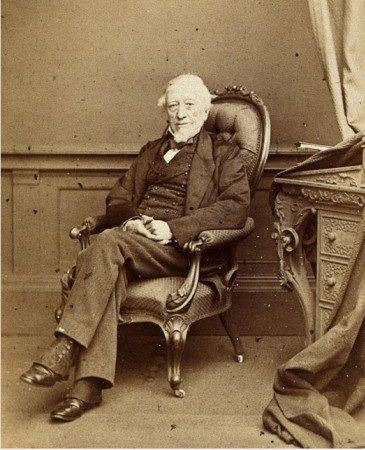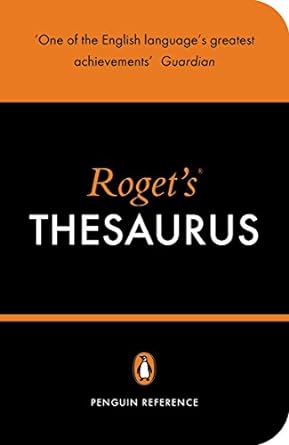Thesaurus Day is an annual celebration of words and language observed on 18 January. It encourages people to explore and expand their vocabulary by using a thesaurus to find alternative words and enhance their communication skills.
In today’s world, language plays a crucial role in communication. For personal or professional purposes, we rely on language to express ourselves and convey our thoughts effectively. On the occasion of Thesaurus Day, let us take a moment to appreciate the power of language and the tools that help us explore and expand our linguistic abilities. This article will explore the history and significance of thesaurus and how it can transform writing and communication. Additionally, we will suggest some fun ways to celebrate and improve your language skills.
- What is Thesaurus Day?
- How to celebrate Thesaurus Day?
- What is a thesaurus?
- How can a thesaurus transform writing and communication?
- How do you improve the text when the thesaurus is not enough?
What is Thesaurus Day?
The annual National Thesaurus Day falls on 18 January, but this date is not randomly chosen. It is, in fact, the birth date of the creator of the thesaurus: Peter Mark Roget. He became known for his creation of the Thesaurus of English Words and Phrases Classified and Arranged so as to Facilitate the Expression of Ideas or Assist in Literary Composition (or Thesaurus of English Words and Phrases) in 1852.
How to celebrate Thesaurus Day?
Some people may celebrate language, words and the tools to explore and expand their linguistic abilities. Therefore, celebrating Thesaurus Day could involve activities such as:
- Exploring synonyms: Delve into the thesaurus and discover new words that can enrich your vocabulary.
- Creative writing: Use the synonyms dictionary to find alternative words when working on a creative writing project. Experimenting with different words can add depth and variety to your writing.
- Word games: Engage in word games or puzzles that challenge your understanding of synonyms and antonyms. For instance, try crossword puzzles, word ladders, balderdash, Scrabble or words with friends.
- Learning new words: Take the opportunity to learn new words and their meanings. Challenge yourself to incorporate these words into your daily communication.
- Sharing words: Encourage conversations about language and words. Share interesting words or phrases with friends, family or colleagues.
- Rewriting a famous text: Try taking a favourite song, poem or even short story and using the thesaurus to change the words.
What is a thesaurus?
The thesaurus is a type of dictionary that lists words and phrases grouped by similarity of meaning. It is commonly referred to as a synonym dictionary or a book of words and their synonyms. Its history dates back several centuries. Furthermore, the term’ thesaurus’ originates from the Greek word thesauros, meaning ‘storehouse’ or ‘treasure.’
What is Roget’s Thesaurus?

Thesaurus of English Words and Phrases, written by Peter Mark Roget (1779–1869), is a seminal work in lexicography and language reference. Roget was a British physician, theologian and lexicographer. First published in 1852, Roget’s Thesaurus has become one of the most widely used and recognised thesauruses in the English language.
Unlike traditional thesauruses, Roget arranged words based on ideas or concepts, with each category further subdivided into related concepts. This allows users to navigate related concepts and find words closely associated with a particular idea. Moreover, the this dictionary covers many topics, making it useful for writers, speakers, and individuals seeking to express themselves more precisely.

Furthermore, Roget assigned numerical codes to words within each category and subcategory, allowing for a systematic and organised reference system. This numerical coding became a defining feature of Roget’s Thesaurus. It has been widely used by writers, students and anyone looking to enhance their vocabulary.
Different editions of Roget’s Thesaurus were published, each reflecting how language usage changes and expanding the range of entries. In the digital age, it has been adapted into various electronic accessible formats.
How can a thesaurus transform writing and communication?
The transformative influence of an online thesaurus on writing and communication is noteworthy. Its benefits encompass:
- Vocabulary enhancement: First, as an extensive repository of synonyms and antonyms, it empowers users to diversify their language and enrich their vocabulary.
- Precision in communication: Users can select words with nuanced meanings from the thesaurus, aiding precise expression crucial in academic, professional or creative writing.
- Avoiding word repetition: Recognising the monotony of word repetition, the thesaurus assists writers in identifying alternative words, enhancing the engagement of the writing.
- Language exploration: Moreover, synonyms and related words serve as inspiration for writers, encouraging them to consider diverse expressions suitable for their context.
- Creative writing support: Creative writers find the synonym dictionary invaluable for discovering the perfect words to evoke emotions, describe scenes or establish a unique voice.
- Learning opportunities: Exploring synonyms and antonyms can help individuals understand words’ subtle shades of meaning and improve their language skills.
- Efficiency in editing: Next, during the editing phase, the synonyms dictionary expedites the search for optimal word choices, allowing writers to make their text clear, concise and impactful.
- Professional and academic writing: Professionals and academics use it to elevate the sophistication of their writing, selecting words that convey authority, precision and professionalism.
- Effective cross-cultural communication: For those communicating across diverse cultures, this dictionary helps find words that convey meanings accurately and with cultural sensitivity.
How do you improve the text when the thesaurus is not enough?
Sometimes, the thesaurus dictionary may not be enough to elevate your text and prepare it for publication. In that case, consider working with a professional editor who can help to polish your work to perfection. There are different types of editing services available, including proofreading, copyediting, line editing, and developmental editing.
Proofreading involves checking for grammatical errors, while copyediting focuses on improving the flow and readability of your work. Next, line editing takes copyediting one step further by reviewing your work line by line to ensure each sentence flows smoothly. In addition, developmental editing is the most comprehensive form of editing and involves reviewing your work for the overall structure, plot, character development and pacing. When choosing an editor, consider your budget, the editor’s qualifications and experience as well as their communication style and approach to editing. In sum, investing in professional editing services can help take your writing to the next level.
Final thoughts
To conclude, Thesaurus Day is a reminder of the importance of language and the role it plays in our lives. It is a celebration of the tools and resources that help us expand our vocabulary and express ourselves more effectively. By taking some time to appreciate the history, significance and benefits of thesaurus, we can improve our language skills and enrich our communication. So, let us celebrate this day by exploring new words, learning new meanings, and enhancing our linguistic abilities.
I am an experienced editor, working with non-fiction, academic and business books. If you need proofreading and editing of your text, contact me for a free sample edit (and remember to use my early bird discount).


